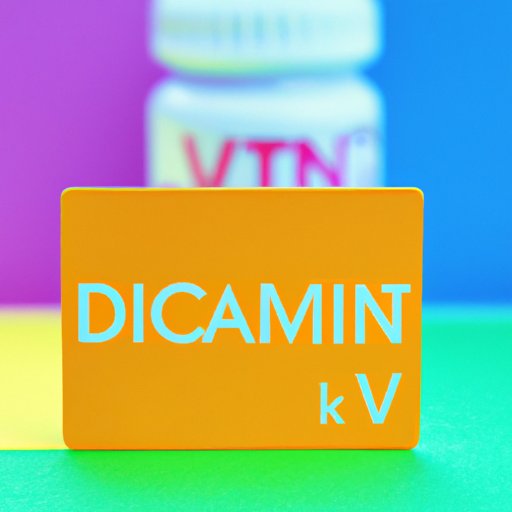
I. Introduction
If you’re like most people, chances are you’ve been told that getting enough vitamin D is important for good health. But did you know that consuming too much of this essential nutrient can lead to serious health concerns? In this article, we’ll explore the topic of vitamin D overdose, including its risks, causes, and how to avoid it. Whether you’re a health-conscious individual or simply want to learn more about your daily nutrient intake, this article is for you!
II. Understanding Vitamin D
Vitamin D plays a crucial role in promoting overall health, from bone strength to immune function. The recommended daily dosage of vitamin D varies depending on a person’s age and other individual factors, but generally falls between 600 and 800 international units (IU) for most adults. However, it’s important to note that there is a safe intake limit of 4,000 IU per day. When vitamin D is consumed in excess of this amount, it can cause a host of adverse symptoms, including fatigue, nausea, and even kidney damage.
III. Dietary Supplements vs. Natural Sources of Vitamin D
While vitamin D can be obtained from natural sources such as sun exposure, fatty fish, and fortified foods, many people turn to vitamin D supplements to ensure they are getting enough of this nutrient. However, it’s important to be aware that taking vitamin D supplements may increase your risk of consuming too much of the nutrient. To avoid excessive intake, it’s recommended that you consult with a healthcare provider before adding supplements to your diet and closely monitoring your vitamin D levels.
IV. Who is At Risk of Vitamin D Overdose
Some individuals are at higher risk of vitamin D overdose, including those with certain medical conditions, such as hyperparathyroidism, sarcoidosis, or tuberculosis. Additionally, those who take high doses of vitamin D supplements for an extended period of time are also more likely to develop symptoms of overdose. Healthcare professionals can monitor a person’s vitamin D levels to ensure that they are within the safe range and offer guidance for minimizing the risk of overdose.
V. Vitamin D Intake vs. Vitamin D Toxicity
It’s important to understand that there is a difference between high vitamin D intake and vitamin D toxicity. While high intake may result in mild symptoms such as digestive upset or muscle weakness, toxicity is much more severe and can cause kidney damage, bone pain, and other serious health issues. Symptoms of overdose typically occur when an individual has consumed more than 10,000 IU of vitamin D per day over an extended period of time.
VI. Dangers of Excessive Vitamin D Consumption
The effects of excessive vitamin D consumption can be severe and long-lasting. Among the most serious risks associated with overdose include increased risk of cancer, liver damage, kidney damage, and digestive issues. Additionally, those with existing medical conditions or taking certain medications may be more at risk of experiencing adverse effects of high vitamin D intake. To reduce the risk of overdose, it’s important to follow recommended intake guidelines, avoid taking supplements without medical supervision, and regularly monitor your vitamin D levels.
VII. Conclusion
Vitamin D is an essential nutrient that plays a vital role in the health of our bones and overall immune function. However, consuming too much of this important nutrient can lead to serious health concerns. By understanding the risks associated with excess vitamin D intake and taking steps to reduce this risk, you can enjoy the many benefits of this important nutrient without worrying about potential side effects.




